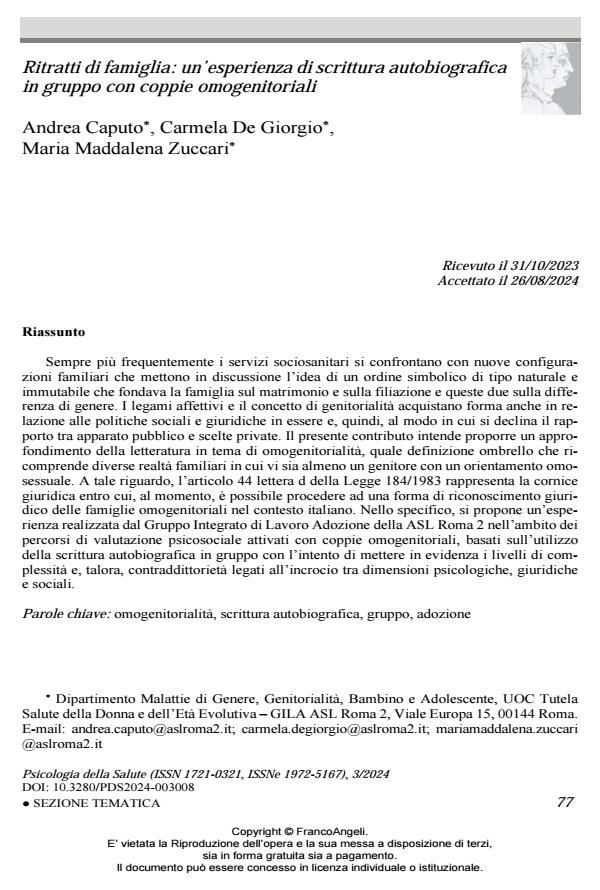Family portraits: an autobiographical writing experience in group with homoparental couples
Journal title PSICOLOGIA DELLA SALUTE
Author/s Andrea Caputo, Carmela De Giorgio, Maria Maddalena Zuccari
Publishing Year 2024 Issue 2024/3
Language Italian Pages 16 P. 77-92 File size 245 KB
DOI 10.3280/PDS2024-003008
DOI is like a bar code for intellectual property: to have more infomation
click here
Below, you can see the article first page
If you want to buy this article in PDF format, you can do it, following the instructions to buy download credits

FrancoAngeli is member of Publishers International Linking Association, Inc (PILA), a not-for-profit association which run the CrossRef service enabling links to and from online scholarly content.
More and more frequently, social and health services are faced with new family configura-tions that call into question the idea of a natural and immutable symbolic order that founded the family on marriage and filiation and these two on gender difference. Affective bonds and the concept of parenthood also take shape in relation to existing social and legal policies and, therefore, to the way in which the relationship between the public apparatus and private choic-es is expressed. This contribution intends to propose an in-depth analysis of the literature on the subject of homoparenting, as an umbrella definition that includes various family situations in which there is at least one parent with a homosexual orientation. In this regard, article 44 letter d of Law 184/1983 represents the legal framework within which, at the moment, it is possible to proceed with a form of legal recognition of homoparental families in the Italian context. Specifically, we propose an experience carried out by the Adoption Integrated Work-ing Group of ASL Roma 2 as part of the psychosocial evaluation paths activated with same-parent couples, based on the use of autobiographical writing in groups with the aim of high-lighting the levels of complexity and, at times, contradictory nature linked to the intersection between psychological, legal and social dimensions.
Keywords: homoparentality, autobiographical writing, group, adoption
Andrea Caputo, Carmela De Giorgio, Maria Maddalena Zuccari, Ritratti di famiglia: un’esperienza di scrittura autobiografica in gruppo con coppie omogenitoriali in "PSICOLOGIA DELLA SALUTE" 3/2024, pp 77-92, DOI: 10.3280/PDS2024-003008